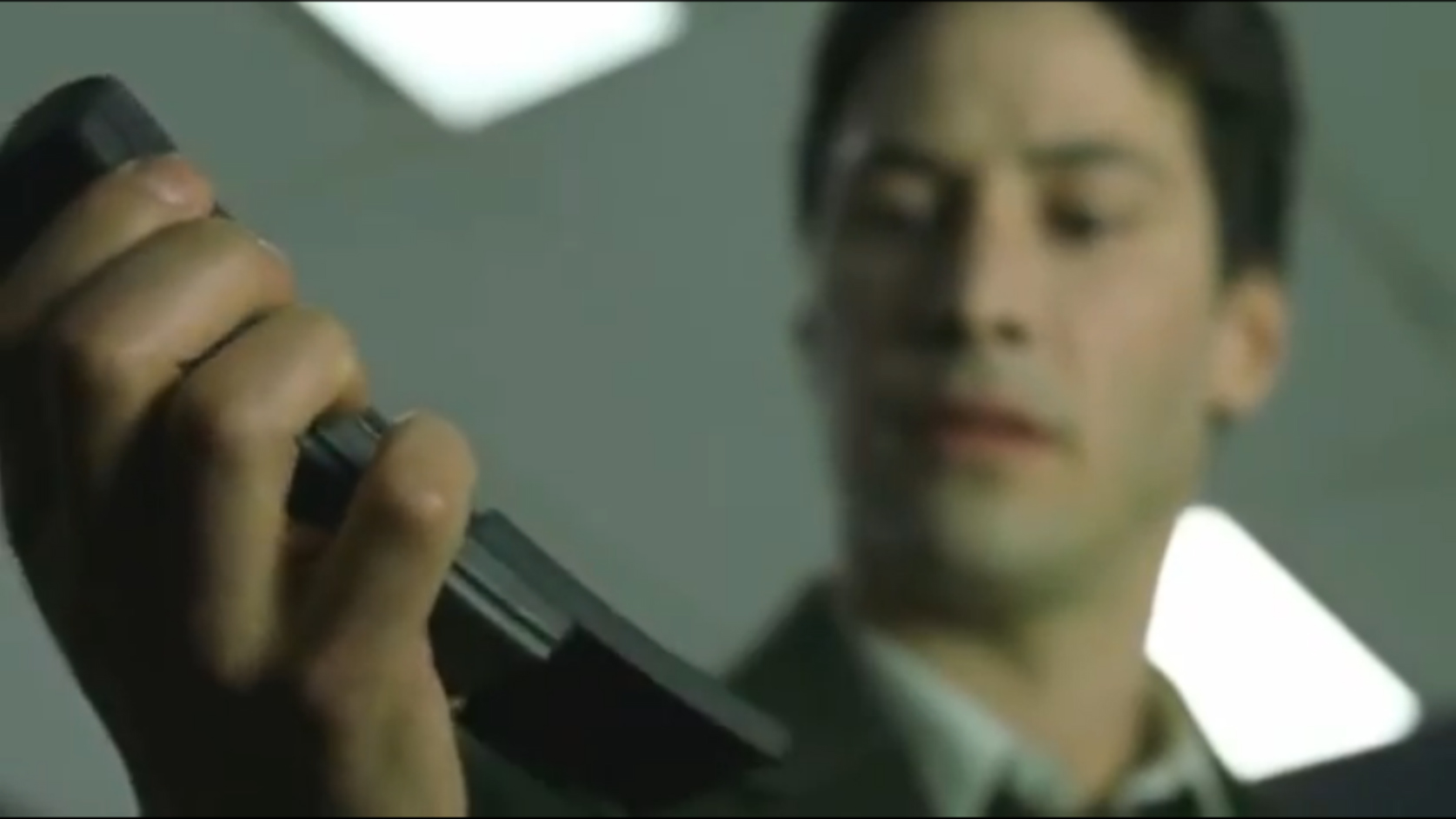Fade Runner: The futuristic Hollywood tech that's already outdated
Nothing dates a movie like cutting-edge tech

Sign up for breaking news, reviews, opinion, top tech deals, and more.
You are now subscribed
Your newsletter sign-up was successful
Have you seen the trailer for Elysium yet? It looks absolutely thrilling - and twenty years from now there's a good chance we'll be honking with laughter at how dated its technology looks.
Hollywood and high technology have an uneasy relationship, and what's cutting-edge today can look awfully dated in less than a decade.
Here are our favourite examples of movie tech that doesn't stand the test of time - let us know your favourites in the comments.
Horribly dated hardware
As seen in: Wall Street, The Matrix, Office Space
Some films date because of fashion - so for example in many mid-70s crime thrillers the real crimes were taking place in the wardrobe department - but sets stuffed with kit can have a similar effect.
For example, Wall Street's greed-is-good tale of misbehaving bankers still resonates today, but it's almost impossible to get through even the trailer without hooting in derision at the power players' enorm-o-phones.
It's a vivid reminder of how dramatically phones have changed: the computers in such films are still recognisably computers, but nobody's been rocking anything like a Motorola DynaTAC for decades.
The most visible change in computers happened in displays: from the despairing corporate drones of Office Space to the, er, despairing corporate drones of The Matrix, no self-respecting late-90s cubicle was complete without a ginormous CRT monitor.
Sign up for breaking news, reviews, opinion, top tech deals, and more.
That's because while we take them for granted now, flat screens are a relatively recent invention: they didn't outsell CRTs in the US until 2003, while in Europe CRT TVs continued to outsell LCDs until 2006.
CRTs are particularly jarring in SF films where incredibly advanced civilisations can build pew-pew lasers but still use vacuum tubes for their tellies.
Old and odd user interfaces
As seen in: Alien, The Net
Nothing says "Windows hasn't been invented yet!" than the appearance of bitmapped fonts in a sci-fi film - usually in green, on a CRT, in capital letters.
Even when a graphical interface is available, the command line usually puts in an appearance eventually - so for example in The Matrix Reloaded, hacking a power control centre means getting down and dirty with the Command Line Interface (CLI).
As Nathan Shedroff writes in "Make It So: Interaction Design Lessons from Science Fiction", the CLI has become a movie cliche: "Directors, writers and designers today use command-line interfaces when they want to communicate one of two things: that a system is older, or that a user has sophisticated computer skills."
User interfaces are a real problem for Hollywood, because they just sit there, interfacing. What works best for people - simplicity - looks pretty dull on a screen, so more often than not movie-makers demand UIs that are, like, totally multi-coloured and zoomy and animated and stuff.
One of our favourite examples is The Net, where Sandra Bullock is tyrannised by really big letters, GIFs of pizzas and screens made of desperately slow bitmaps, but the chances are if it's been made in the last 20 years and involves a computer, Hollywood will have invented a new interface for it.
Rubbish virtual reality
As seen in: Lawnmower Man
It's easy to mock Lawnmower Man - that's what we like about it; it's easy - but it's far from the only offender: where Lawnmower Man went for graphics that'd embarrass today's calculators, films such as Disclosure seemed pretty convinced that in the future, the fastest way to find a file would be to walk through a 1990s adventure game for HOURS.
Dead media and dying media firms
As seen in: Strange Days, The Ring, You've Got Mail
Nothing dates a movie like media that nobody uses any more, whether it's the cassette-playing boombox of Say Anything , the VHS cassettes of The Ring, or the life-recording MiniDiscs of Strange Days.
Today's optical media - CDs, DVDs, Blu-Rays - are on the way out too, so if you're writing a screenplay about Satan hiding out in an Xbox 360 DVD disc you'd better get it filmed while such things still exist.

Contributor
Writer, broadcaster, musician and kitchen gadget obsessive Carrie Marshall has been writing about tech since 1998, contributing sage advice and odd opinions to all kinds of magazines and websites as well as writing more than twenty books. Her latest, a love letter to music titled Small Town Joy, is on sale now. She is the singer in spectacularly obscure Glaswegian rock band Unquiet Mind.